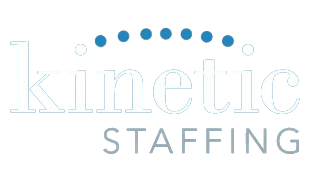According to a recent report from Buffer, 97.6% of workers said they want to work remotely, at least some of the time, for the rest of their career.
Though many companies continue to shift back from fully remote to hybrid work models, the hiring process can still involve a lot of remote work. But before you onboard remote employees and eventually manage them, you need to master remote hiring as well as remote interviewing.
In this post, you’ll learn the benefits of remote hiring and interviewing, how to refine your remote hiring and remote interview processes, and most importantly, how to make the best hires. Let’s dive in!
Differences Between In-Person And Remote Hiring & Interviewing
Let’s face it. Interviewing someone through a screen is not the same as having an in-person conversation. There are many differences between these two methods of communication, and hiring managers should be aware of this when conducting interviews for remote positions.
Let’s break down some of these differences so you know what to expect.
Small Talk
A significant difference you’ll notice is small talk at the beginning of the interview. It’s critical that you spend time at the beginning of the interview to gel with your candidate, but this may not come naturally in a remote interview. Make sure you’re taking time to ask about your candidates’ interests and chat about something other than work.
Remember that building rapport is more than just asking about hobbies. It’s about being personable with your potential hires and making a good impression.
Listening Skills
Another significant difference between remote interviews and traditional in-person ones is listening skills. An interviewee cannot rely on someone’s full body language to signal that it’s time to move onto the next question, nor can they lean forward to indicate interest.
A great way to combat this issue is making your candidates feel heard by not interjecting during their responses. Interrupting is one of the quickest ways to foul up a remote interview and prevent your candidate from doing well.
Staying Engaged
You must work extra hard to keep your candidates engaged during a remote interview because applicants may experience distractions that interfere with their ability to focus. This could be in the form of pets, children, a rowdy neighbor, or anything else. Here are some ideas for keeping your interviewee on track:
- Keep your candidates talking about themselves. Ask more questions than you answer and avoid talking too much about yourself.
- Focus on building rapport. Don’t just read off a list of questions to your candidate and call it a day. Try to have a real conversation with them instead!
- Try to keep the interview shorter than an hour. Remote interviews tend to be uncomfortable for both parties if they last too long. You run the risk of losing your candidate’s attention by asking unnecessary questions just to fill time.
These are just a few ways managers can make the best of virtual interviews, but the most important is to recognize that they are inherently different than in-person ones. Employers need to keep these differences in mind when hiring remote employees, and candidates must be prepared for them as well.





